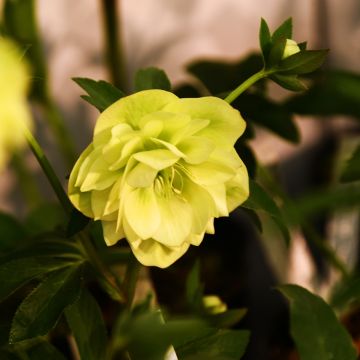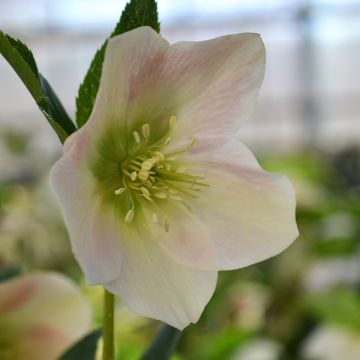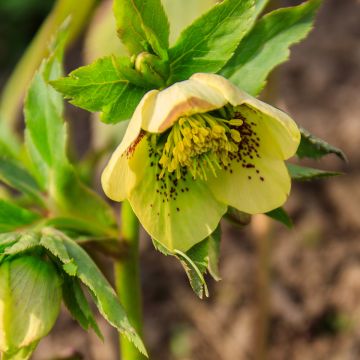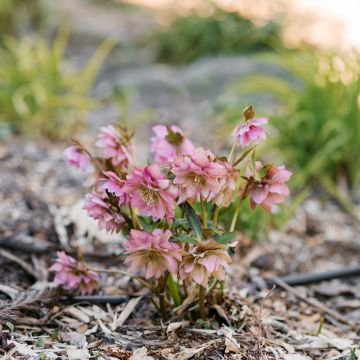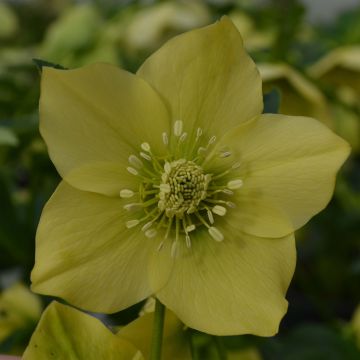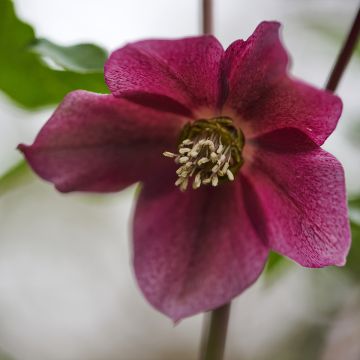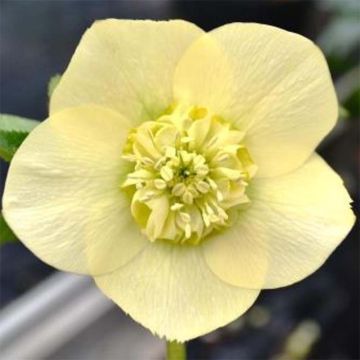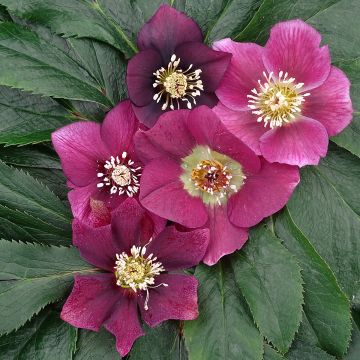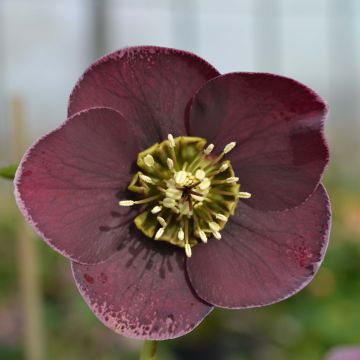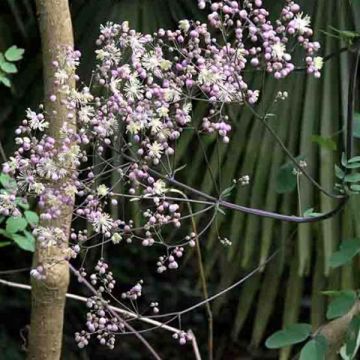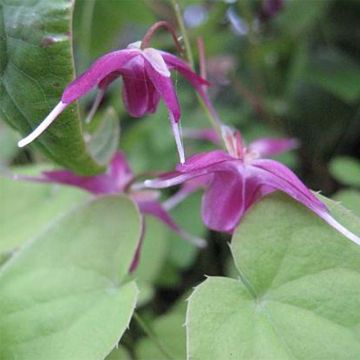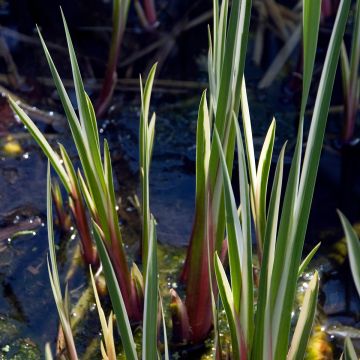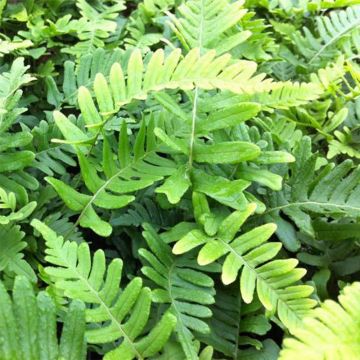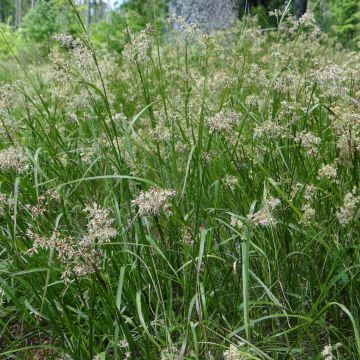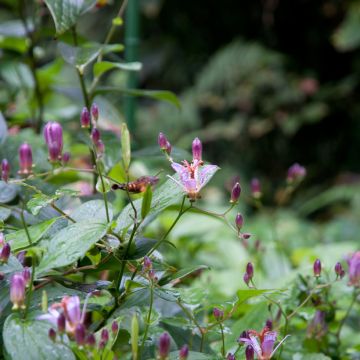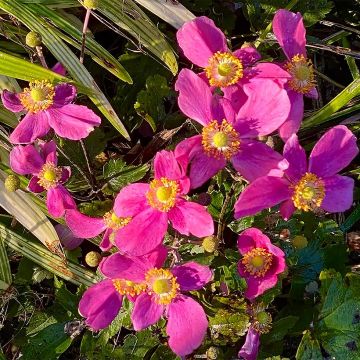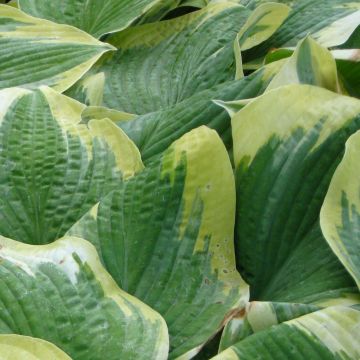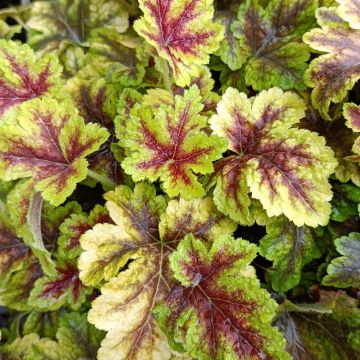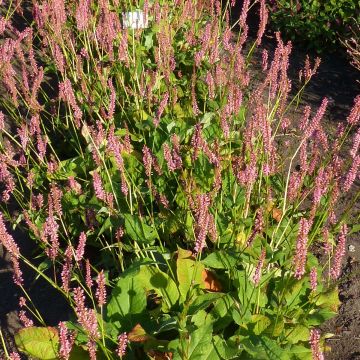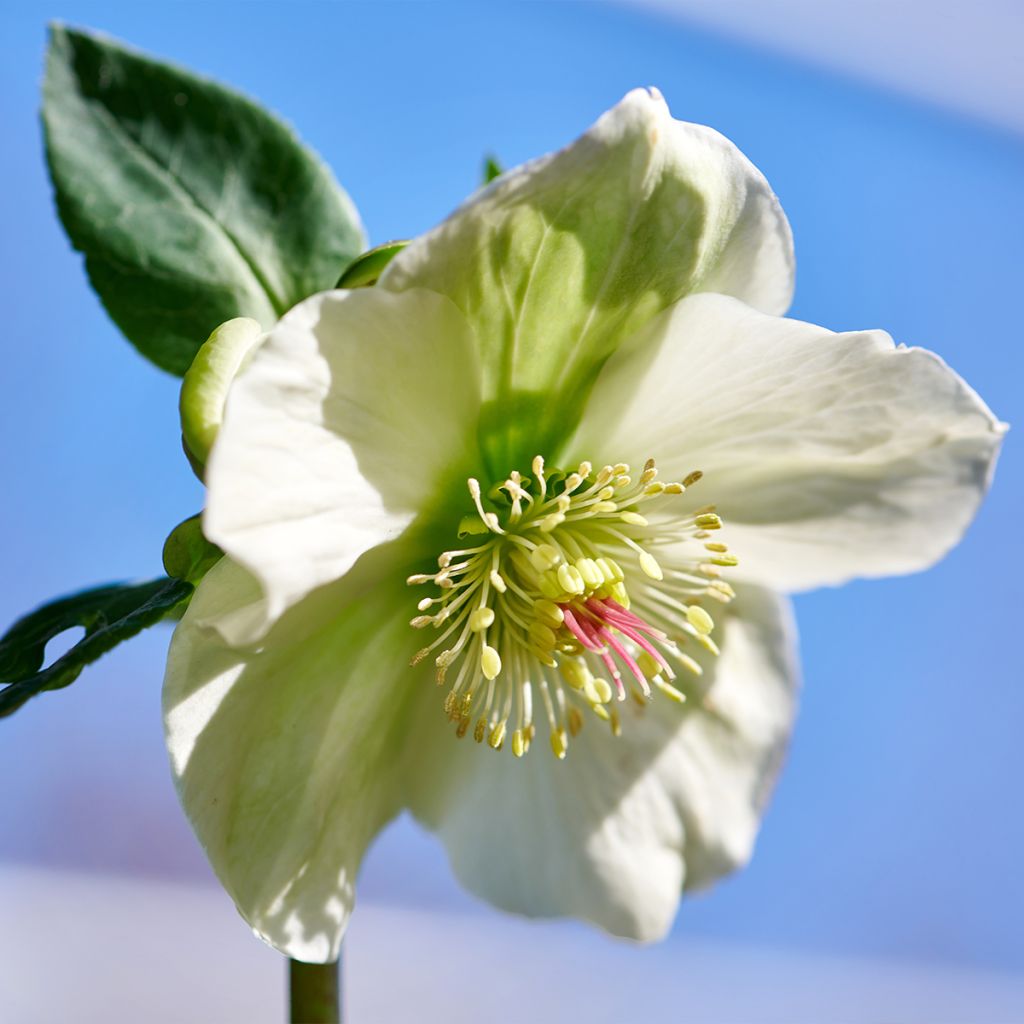

Helleborus ViV Bianca
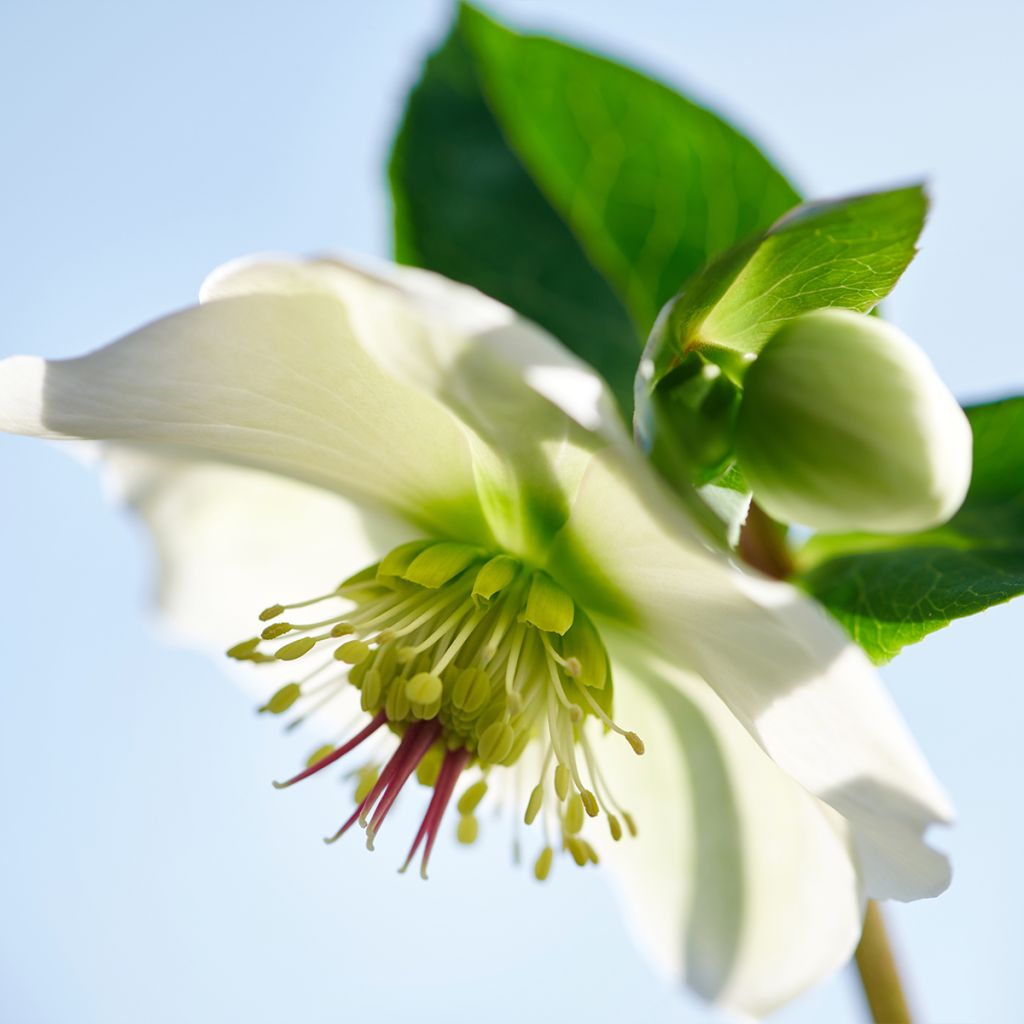

Helleborus ViV Bianca
Helleborus ViV Bianca
Helleborus x glandorfii ViV Bianca
Hellebore, Snow Rose
This item cannot be shipped to the selected country
Delivery charge from €5.90
More information
Schedule delivery date,
and select date in basket
This plant carries a 12 months recovery warranty
More information
We guarantee the quality of our plants for a full growing cycle, and will replace at our expense any plant that fails to recover under normal climatic and planting conditions.
From €5.90 for pickup delivery and €6.90 for home delivery
Express home delivery from €8.90.
Does this plant fit my garden?
Set up your Plantfit profile →
Description
Bianca hybrid Hellebore is a variety from the ViV collection with a very compact habit. This perennial is the result of cross-breeding between several species, from which it inherits numerous qualities, starting with its decorative foliage. Composed of 3 to 5 quite wide leaflets with toothed edges, these dark green evergreen leaves have a sculptural appearance. They also provide a perfect backdrop to showcase the very large white flowers, which can reach 10 cm (4in) in diameter. Blooming in January and February, they bring joy to the garden during an often gloomy season. Growing in partial shade to full shade, this perennial appreciates moist soils, even heavy ones, as long as they are well-drained.
The Bianca Hellebore is a member of the Ranunculaceae family, which includes about sixty genera and around 2500 species. Many of them are poisonous and contain substances which are toxic if ingested - a natural protection to avoid being grazed by herbivores. Despite this, they are valuable plants in the garden, as many genera are highly decorative thanks to their remarkable flowering, such as Anemones, Ranunculus, Trollius, Aconites, and many others, including Clematis. Helleborus orientalis species is native to Greece, Turkey, and the central and eastern Caucasus. It is a perennial plant that readily hybridizes with other species, resulting in hybrids with varied colours and forms through random sowing, rarely given variety names. They are distinguished by their shape and colour characteristics. The hybrid Hellebore is a hardy plant that can tolerate temperatures as low as -15°C (5°F), naturally growing in forests, thickets, and clearings up to 2,000 m (6,562 ft) altitude.
Bianca is a variety of Helleborus x glandorfii, a complex hybrid obtained by crossing two other hybrids, H. x ericsmithii (itself resulting from the cross between H. niger, the well-known Christmas Rose, and H. x sternii, another hybrid!) and H. x hybridus, whose name says it all... From this intense genetic mix came a perennial full of qualities, which is part of a large collection of hybrids selected and multiplied by a specialist Belgian company. This range has been the subject of a selection process spanning many years to obtain plants that combine compactness and floribundance. Bianca develops into a very compact and leafy clump, reaching only 25 to 35 cm (10 to 14in) in height. It consists of palmate basal leaves with 3 to 5 broad, toothed leaflets that overlap each other, giving a sculptural appearance to the whole. Dark green and slightly glossy, possibly with light green veins, they are decorative all year round. The leaves are evergreen in winter, although they actually only live for 8 months and are regularly replaced by new leaves. Their sculptural shape is particularly decorative throughout the year.
Bianca blooms in the heart of winter, for several weeks from January like other varieties in the Viv collection. This variety is remarkable for the size of its flowers, with corollas reaching 10 cm (4in) in diameter. They are white, with a greenish centre, and a cluster of yellow stamens. These flowers are held vertically or even inclined downwards to allow rainwater to drain and prevent the centre from rotting. Hellebores do not like to be moved once established, and young plants sometimes take time to flower, so be sure to choose the right location when planting.
This perennial adapts to neutral to moderately alkaline (limestone) soils, or slightly acidic soils, preferably rich and retaining some moisture, although an established plant can withstand dry conditions. It will thrive under a leafy tree, which will allow winter sun to pass through but protect it from the intense summer sun. It can also tolerate deeper shade, such as that provided by a coniferous canopy. It is an easy plant to grow, and you can also plant it in a pot on your terrace due to its limited size. In that case, make sure to water it regularly to prevent the soil from drying out.
Hellebores offer some of the most beautiful winter blooms, and this is particularly true for Bianca, whose flower size is exceptional. Its preference for shaded corners allows it to bring light to these dark areas. Plant it under the canopy of a deciduous tree to protect it from the sun during the growing season and fully enjoy its winter flowering; the pale winter sun does not harm it (in southern regions, it is better to provide shade from evergreens...). To ensure a spectacle in winter, play with all the elements by associating Bianca's flowers with those of Cyclamen coum, which are a magnificent pink and will last until spring, as well as decorative barks and fruits. The Cornus alba Siberian Pearls is a Four Seasons Dogwood, with white spring flowers, followed by white fruits turning blue, and foliage turning purple in autumn, revealing superb red mahogany wood in winter, along with Bianca's white flowers. And for decorative fruits in winter, consider the numerous Callicarpas, some of which tolerate partial shade, as well as the Euonymus planipes, a spindle tree with magnificent autumn colours and decorative pink and orange fruits.
Report an error about the product description
Flowering
Foliage
Plant habit
Safety measures
Botanical data
Helleborus
x glandorfii
ViV Bianca
Ranunculaceae
Hellebore, Snow Rose
Cultivar or hybrid
ingestion
Cette plante est toxique si elle est ingérée volontairement ou involontairement.
Ne la plantez pas là où de jeunes enfants peuvent évoluer, et lavez-vous les mains après l'avoir manipulée.
Pensez à conserver l'étiquette de la plante, à la photographier ou à noter son nom, afin de faciliter le travail des professionnels de santé.
Davantage d'informations sur https://plantes-risque.info
Other Oriental Hellebore
Planting and care
Bianca Hellebore grows in any neutral to moderately chalky, rich, light or clayey soil, in partial or light shade, sheltered from cold and dominant winds. Avoid direct sunlight during the hottest hours in the south. This perennial should be planted from early autumn to spring. It thrives in deeply cultivated soil mixed with organic matter. To feed, use bone meal or another organic fertilizer. Water well after planting and add a layer of mulch 2 to 5 cm (1 to 2in) thick. Regularly remove faded leaves to improve flowering. Ensure a planting distance of 30 to 40 cm (12 to 16in) between each plant to promote their development. The Hellebore does not tolerate stagnant water as it may cause it to rot.
The roots should not completely dry out in summer. Hellebores can be affected by a fungal disease transmitted by aphids, known as black spot. Remove any stained leaves when the flower buds appear. Remove faded flowers after the seeds have fallen. They can also suffer from grey rot or die from collar rot due to poor growing conditions, in excessively wet situations.
On a balcony or terrace, plant this perennial in a pot 4 to 5 times larger than its size, as it needs space to develop its root system. This Hellebore can withstand temperatures down to -15°C (5°F) or even lower, allowing it to adapt to almost all regions.
Planting period
Intended location
Care
This item has not been reviewed yet - be the first to leave a review about it.
Shade-loving perennials
Haven't found what you were looking for?
Hardiness is the lowest winter temperature a plant can endure without suffering serious damage or even dying. However, hardiness is affected by location (a sheltered area, such as a patio), protection (winter cover) and soil type (hardiness is improved by well-drained soil).

Photo Sharing Terms & Conditions
In order to encourage gardeners to interact and share their experiences, Promesse de fleurs offers various media enabling content to be uploaded onto its Site - in particular via the ‘Photo sharing’ module.
The User agrees to refrain from:
- Posting any content that is illegal, prejudicial, insulting, racist, inciteful to hatred, revisionist, contrary to public decency, that infringes on privacy or on the privacy rights of third parties, in particular the publicity rights of persons and goods, intellectual property rights, or the right to privacy.
- Submitting content on behalf of a third party;
- Impersonate the identity of a third party and/or publish any personal information about a third party;
In general, the User undertakes to refrain from any unethical behaviour.
All Content (in particular text, comments, files, images, photos, videos, creative works, etc.), which may be subject to property or intellectual property rights, image or other private rights, shall remain the property of the User, subject to the limited rights granted by the terms of the licence granted by Promesse de fleurs as stated below. Users are at liberty to publish or not to publish such Content on the Site, notably via the ‘Photo Sharing’ facility, and accept that this Content shall be made public and freely accessible, notably on the Internet.
Users further acknowledge, undertake to have ,and guarantee that they hold all necessary rights and permissions to publish such material on the Site, in particular with regard to the legislation in force pertaining to any privacy, property, intellectual property, image, or contractual rights, or rights of any other nature. By publishing such Content on the Site, Users acknowledge accepting full liability as publishers of the Content within the meaning of the law, and grant Promesse de fleurs, free of charge, an inclusive, worldwide licence for the said Content for the entire duration of its publication, including all reproduction, representation, up/downloading, displaying, performing, transmission, and storage rights.
Users also grant permission for their name to be linked to the Content and accept that this link may not always be made available.
By engaging in posting material, Users consent to their Content becoming automatically accessible on the Internet, in particular on other sites and/or blogs and/or web pages of the Promesse de fleurs site, including in particular social pages and the Promesse de fleurs catalogue.
Users may secure the removal of entrusted content free of charge by issuing a simple request via our contact form.
The flowering period indicated on our website applies to countries and regions located in USDA zone 8 (France, the United Kingdom, Ireland, the Netherlands, etc.)
It will vary according to where you live:
- In zones 9 to 10 (Italy, Spain, Greece, etc.), flowering will occur about 2 to 4 weeks earlier.
- In zones 6 to 7 (Germany, Poland, Slovenia, and lower mountainous regions), flowering will be delayed by 2 to 3 weeks.
- In zone 5 (Central Europe, Scandinavia), blooming will be delayed by 3 to 5 weeks.
In temperate climates, pruning of spring-flowering shrubs (forsythia, spireas, etc.) should be done just after flowering.
Pruning of summer-flowering shrubs (Indian Lilac, Perovskia, etc.) can be done in winter or spring.
In cold regions as well as with frost-sensitive plants, avoid pruning too early when severe frosts may still occur.
The planting period indicated on our website applies to countries and regions located in USDA zone 8 (France, United Kingdom, Ireland, Netherlands).
It will vary according to where you live:
- In Mediterranean zones (Marseille, Madrid, Milan, etc.), autumn and winter are the best planting periods.
- In continental zones (Strasbourg, Munich, Vienna, etc.), delay planting by 2 to 3 weeks in spring and bring it forward by 2 to 4 weeks in autumn.
- In mountainous regions (the Alps, Pyrenees, Carpathians, etc.), it is best to plant in late spring (May-June) or late summer (August-September).
The harvesting period indicated on our website applies to countries and regions in USDA zone 8 (France, England, Ireland, the Netherlands).
In colder areas (Scandinavia, Poland, Austria...) fruit and vegetable harvests are likely to be delayed by 3-4 weeks.
In warmer areas (Italy, Spain, Greece, etc.), harvesting will probably take place earlier, depending on weather conditions.
The sowing periods indicated on our website apply to countries and regions within USDA Zone 8 (France, UK, Ireland, Netherlands).
In colder areas (Scandinavia, Poland, Austria...), delay any outdoor sowing by 3-4 weeks, or sow under glass.
In warmer climes (Italy, Spain, Greece, etc.), bring outdoor sowing forward by a few weeks.

































